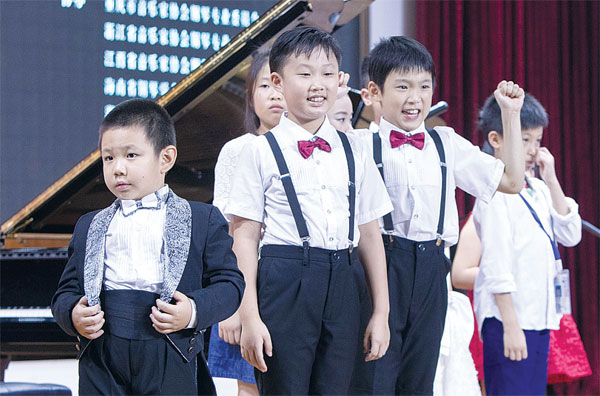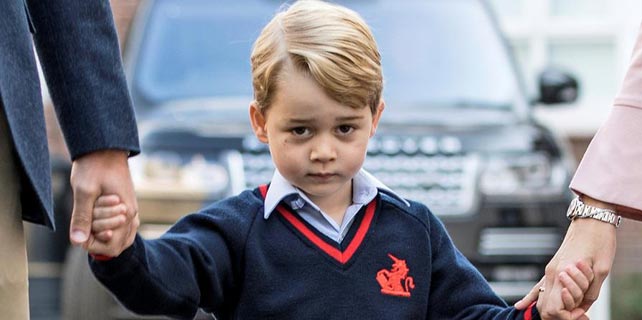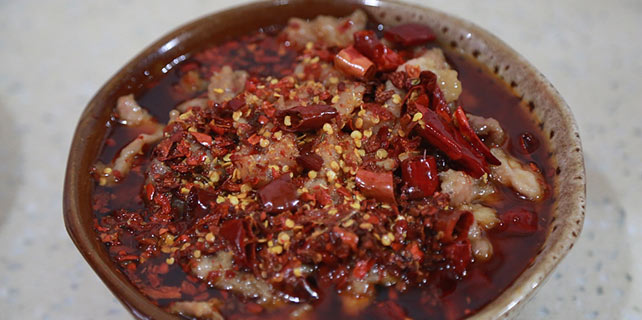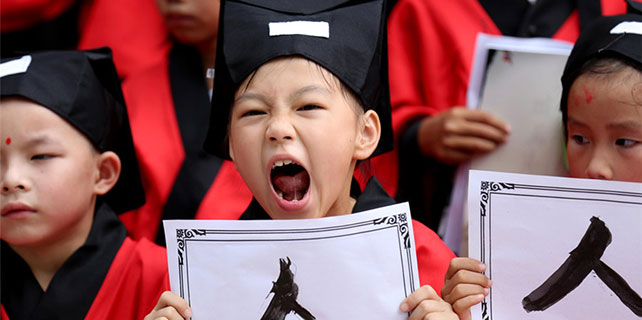Hitting the right notes in life
 |
|
Children participate at the 10th Shanghai International Youth Piano Competition held in August.GAO ERQIANG / CHINA DAILY |
The piano-playing trend in Shanghai started in the late 1980s in tandem with the rise of the nation's economic development. Back then, the musical instrument was considered a luxury item. An average piano would cost about 1,000 yuan ($270), which was equivalent to two years' worth of wages for the average worker.
In 1988, Shanghai became the first city in the country to introduce grading tests for amateur piano players and children who achieved certain grades would get priority placement in elite junior and senior high schools. As a result, parents in the city rushed to sign their children up for piano lessons.
Although priority placement via piano grades was removed in 1996, the demand for grading tests did not fall and has steadied at around 20,000 each year. Tang said that this phenomenon suggests that parents today view playing the piano as more than just a practical tool required to climb the social ladder.
But there are still parents who would go the extra mile to ensure their children receive the best piano education and excel on the stage.
Jiao Yang is the mother of 10-year-old Liu Shanruo who recently finished second in the category for those aged 8 to 10 at the 10th Shanghai International Youth Piano Competition.
"Like most parents, we didn't have high expectations that our child would achieve great things with the piano. But when she began to outperform others, we wanted her to continue being successful," said Jiao.
The 40-year-old mother said the main intent of having her daughter learn the piano was so that she could grow up to become beautiful and elegant. The girl had previously learned ballet but later stopped because piano practice took up too much time.
"My husband and I used to be 'study machines'. Our parents were demanding of our studies. Looking back, we didn't have any special hobbies or skills except studies. We felt it was a pity and we don't want our child to go through that same experience," said Jiao.
As Liu is excelling in her studies as well, Jiao admitted that she isn't sure if she would encourage her daughter to focus solely on music. For now, she is more than happy to fork out the required investments so that Liu can improve her piano playing skills.
Liu has always been learning to play the piano from a teacher who lives in their community in Dalian, Liaoning province. In addition, Jiao has been bringing her daughter to Beijing once a month for the past four years to undergo training by a renowned piano teacher.
"We take a coach departing Dalian at 8 pm so that we can attend the class the next morning. We then board a five-hour high-speed train ride in the afternoon and arrive home by 10 pm," Jiao said.
The girl has to request for a leave of absence from school for two days every month as the piano teacher in Beijing, who charges 2,000 yuan for a 45-minute class, does not have available slots on the weekends.
Although the teacher's fee is almost 10 times the average rate, Jiao and her daughter said the investment is worth the results.
"The class session may be short but the teacher is able to give much constructive criticism to a piano piece that I think I have already perfected. This has resulted in me making huge progress in my playing ability," Liu said.
Despite the imminent price hike of the teacher's fees, Jiao said she will spare no efforts in providing her daughter the best resources.
"I believe that a great teacher produces brilliant students. If there are other famous teachers in Beijing or Shanghai, I'll sign my daughter up for their classes too," she said.
zhouwenting@chinadaily.com.cn









